What Hinders DX In Vietnam Business Operation?
DX (Digital Transformation) is a buzzword for every business on a global basis. According to IDC, the global market size for the DX market is over $10 trillion, with a CAGR of over 10% for the next few years.
Vietnam is not the exception, and there have been quite a number of DX companies that help the enterprises, and the retailers to utilize digital in their operations. Let us see the current status of digitalization in Vietnam through our research data from a number of enterprises and retailers.
DX Penetration In Vietnam Enterprises
First, let us take a look at DX penetration for the enterprise side. For sales management, more than half of the companies introduce systems such as ERP or DMS to manage their sales-related operations via technologies.
Although some companies still need to rely on email or Zalo for some operations, the enterprises have come to realize the effectiveness of the systems in sales management.
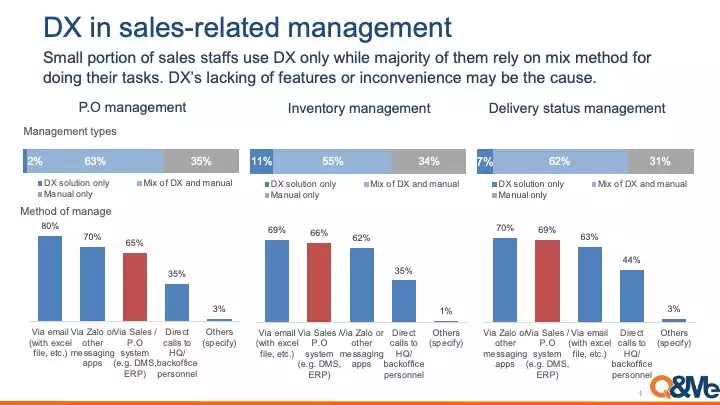
On the other hand, the other reporting or daily management is still conducted traditionally. For instance, ad-hoc information (like store audits) or business sharing is done through emails or Zalo.
Also, the time-off management depends on the traditional method as well. There are several traditional business processes remaining in the enterprise operations, particularly for the ad-hoc information management.
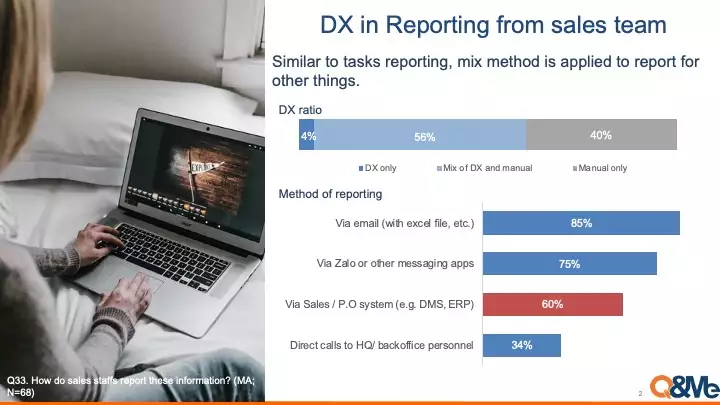
DX Penetration In Vietnam Retail Stores
How about the retail stores? Many retailers have POS already, so let us take a look at the other operations. If you take a look at the HQ - store communications, many retailers still rely on email or physical communications by supervisors visiting each store daily.
This applies to the same for the store operations. The store operation requires the daily maintenance and the reporting of facilities and displays. Still, the majority of the retailers depend on the spreadsheet and photos to send the result via email or Zalo separately.
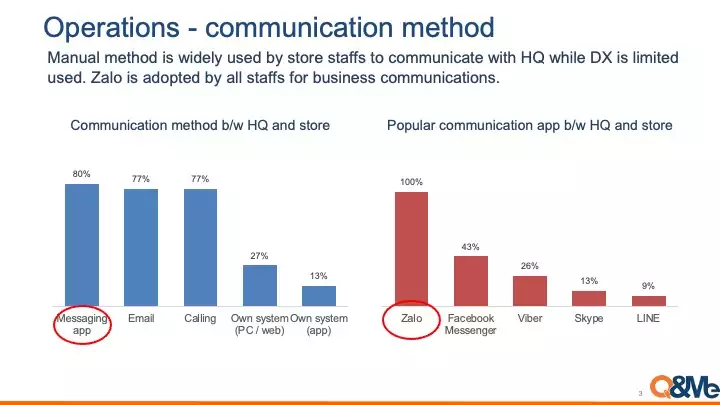
What Hinders Vietnam DX Penetration
So, why is digitalization in Vietnam not penetrated as fast as the other developed countries, despite that Vietnam has a very strong IT industry?
One of the reasons is the dependency on Zalo. Zalo offers super-convenient communication not only in personal relationships but in business.
Now that there are fewer privacy concerns yet, Zalo works as the standard tool for enterprise and store communications. Zalo + manual works of data input exist as the alternative for digitalization.
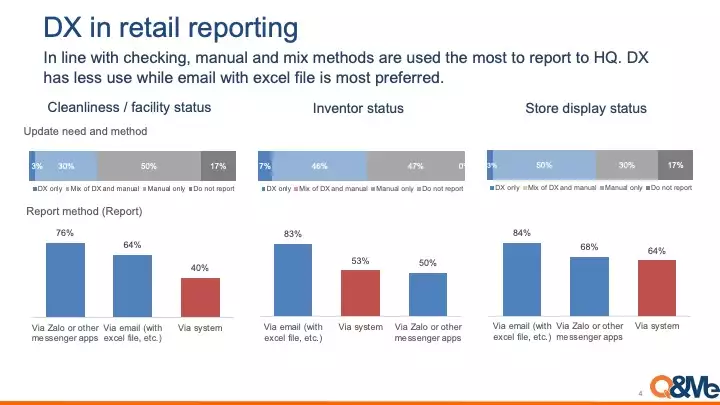
The other reasons are the labor cost. Thanks to the low labor cost, many routine operations are established by manual work based on intensive human labor. Less cost reduction effect could be anticipated in Vietnam, unlike in the US / Europe. Although not efficient, the necessary information could be obtained through massive manual works of spreadsheet input.
And I also would like to raise the issues of Vietnamese enterprise cultures that are reluctant to change. Some Vietnamese enterprises tend to stick with the existing operations and do not like to change them unless there is a strong top-down direction. There are fewer bottom-up cultures to improve the operations. The lack of management and creativity ends up repeating the same routine without big questions.
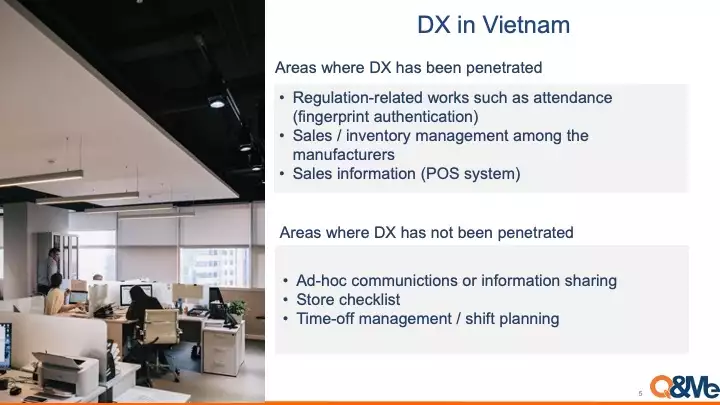
Vietnam DX To Provide Intelligence For The Labor Force
Having said that, the changes happen so quickly in Vietnam in the usage of digital. The success of Grab tells us that the power of digital provides the intelligence for the labor workers for better customer service and productivity.
The potentiality of Vietnam DX is to empower all the workers to be more productive with the help of technology, rather than chasing cost efficiency. Now that Vietnam has a superb network of good engineers, while the labor cost is still low, the DX potential in this country should be higher than the others.
Knowing the high potentiality and the need for digitalization, we ourselves came up with our own DX solutions, utilizing our expertise in the data collections and the analysis established as the research technologies. We aim to provide intelligence to all the fieldworkers with our solutions. Please take a moment to see our new DX solution.




